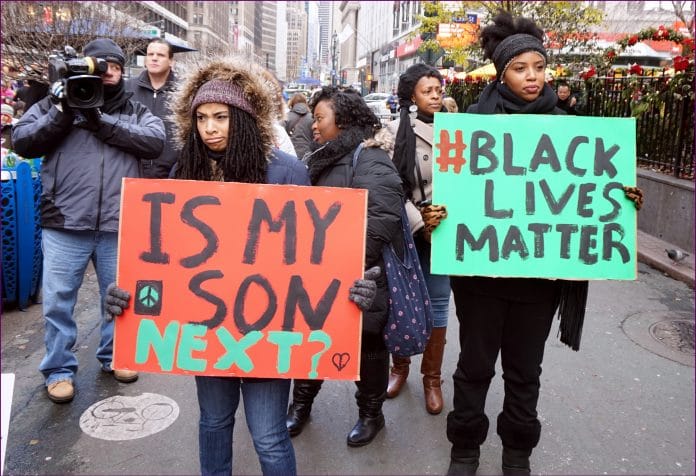In ‘The Origin of Others’, Morrison speaks more than she writes, blurting and susurrating stories in a structure driven by the collective memory of oppression.
It was in 2009 that a strange optimism inaugurated Obama into the White House, and the winds which stir the media grapevine began to hiss of a post-racial America. What was beginning to take shape was the dream that it won’t now matter if you’re black or white, and that you will be judged by the content of your character in a society blind to colour — all lives would matter equally.
Since 2015, the deaths of Trayvon Martin, Eric Garner, Michael Brown, Ezell Ford, Akai Gurley, Tamir Rice and others, adding up to a total of 74 entirely unarmed black people killed by law enforcement, have screamed out a renewed wind of identity politics. In 2017 alone, 92 of the black victims killed by law enforcement were not entirely unarmed, but had no gun on them. The second wind of identity politics is then necessary to eschew colour-blindness in a deathly struggle with a systemic violence whose scope is trained for colour.
Nobel Prize winning novelist Toni Morrison in her collected Norton lectures published in 2017 speaks to her audiences and readers of this persisting, bloody “Otherness of the Black American”. The Origin of Others is her first publication since the 2015 novel God Save the Child. But unlike her novels, she is not saying anything new here. And that is the point.
Morrison speaks in the book more than she writes, blurting and uttering and sighing and susurrating stories in a structure driven by the collective memory of oppression. She speaks of Thomas Thistlewood and the diary he kept detailing his life as a slave owner on his sugar plantation in the 18th century Jamaica. The monstrous is made banal as he records his countless rapes with details no other than time, place, frequency, and the extent of his satisfaction.
Or Morrison recalls the 1831 memoir of Mary Prince, a West Indian slave who recounts being stripped and flogged mercilessly with cow skin for allegedly breaking an earthen jar which was already cracked all across its middle. With equal amounts of puzzlement and outrage, Morrison asks us, “Nothing will undo the accident; nothing will immediately repair the jar, so what is the urgency of the beating? To teach a lesson or to enjoy it?”
This puzzlement continues into the story of Isaac Woodard, a celebrated black veteran whose eyes were gouged out by a police chief in 1946 South Carolina as he was returning home — all because he wanted to use the restroom when his bus stopped and the driver was not pleased. The police chief was acquitted after 30 minutes of deliberation in court.
These stories are re-archived in Morrison’s voice, and with each of them she reasserts concepts of otherness which already enjoy a lot of currency in the critical worlds of sociology, literature, politics, and history. Imagine her in an intimate little huddle with her audiences, listing out lynching from the past century, data with which none of us can claim surprise. The repetition of these stories is the argument. What has been happening in the past few years is not anything new or greatly different from what has been happening forever.
The Origin of Others almost becomes literary criticism at moments and is as interesting for readers looking to hear an author on her own work and the work of others such as Hemingway, Faulkner, Flannery O’Connor, Camara Laye, and Stowe. But again, there is more to Morrison’s argument than a critique of the canon of racialised literature. Swishing in optimism, she speaks of her experiments in revealing different configurations of racism through her novels, struggling to write non-colourist literature, asking a question relevant to minority histories everywhere — is it possible to write of black people without necessarily writing about blackness?
In other words, Morrison meditates for us, asking: What is the need of the hour? It could be that given the transnational movement of people, commodities, and associated cultures, now more than ever we can bask in the common humanity of our common planet. Or it could be that under the threat of homogenisation, we need to cling to that which is pristine in our identities and in the rituals of our communities. Morrison seems to be moving towards the former in an affirmation of humanness, but not through the heedless cry that all lives matter, and not through a forgetting of the past or a negation of difference. What she says is important precisely because it is barely anything new. Rather, we remember again that things are as they were, and that it is not the time for race to be forgotten yet.
Shantam Goyal is a Writing Tutor at Ashoka University, and is also writing his M.Phil dissertation at the Department of English, University of Delhi.






